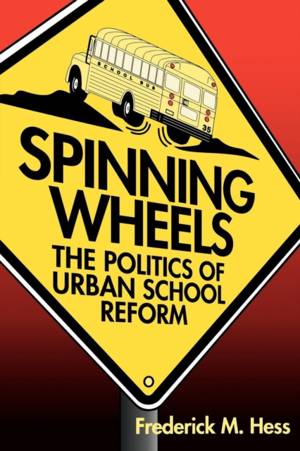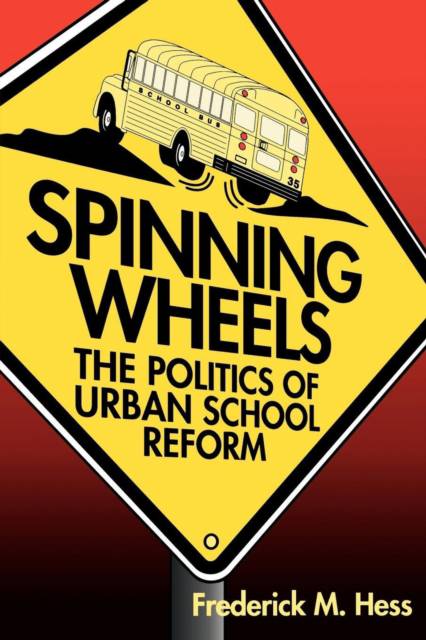
- Afhalen na 1 uur in een winkel met voorraad
- Gratis thuislevering in België vanaf € 30
- Ruim aanbod met 7 miljoen producten
- Afhalen na 1 uur in een winkel met voorraad
- Gratis thuislevering in België vanaf € 30
- Ruim aanbod met 7 miljoen producten
Omschrijving
Almost everyone agrees that America's urban schools are a mess. But while this agreement has fostered widespread support for aggressive reform, Frederick Hess argues that much of what ails urban education is actually the result of continuous or fragmentary reform. Hess explains that political incentives drive school superintendents to promote reforms--to demonstrate that they are ""making a difference."" Superintendents have to do this quickly, both because their tenure is usually three years or less and because urban communities are anxious to see educational improvement. However, the nature of urban school districts makes it very difficult to demonstrate concrete short-term improvement. The result is what he terms ""policy churn,"" which distracts teachers and principals from efforts to refine classroom teaching while seldom resulting in successful long-term changes. Hess argues that policymakers have misallocated resources by pursuing the ""right"" structure or the ""best"" pedagogy while paying insufficient attention to the more mundane--and more important--questions of how to implement, refine, and sustain a particular approach in their particular district. Hess explains that previous research on high-performing schools suggests that the best schools are characterized by focus and by an ability to develop expertise in specific approaches to teaching and learning. To help educators and policymakers adopt and nurture a focused agenda, he recommends institutional changes that increase the effectiveness of performance outcomes and reduce the incentives to emphasize symbolic reform.
"Specificaties
Betrokkenen
- Auteur(s):
- Uitgeverij:
Inhoud
- Aantal bladzijden:
- 244
- Taal:
- Engels
Eigenschappen
- Productcode (EAN):
- 9780815736356
- Verschijningsdatum:
- 1/11/1998
- Uitvoering:
- Paperback
- Formaat:
- Trade paperback (VS)
- Afmetingen:
- 150 mm x 226 mm
- Gewicht:
- 158 g

Alleen bij Standaard Boekhandel
Beoordelingen
We publiceren alleen reviews die voldoen aan de voorwaarden voor reviews. Bekijk onze voorwaarden voor reviews.








